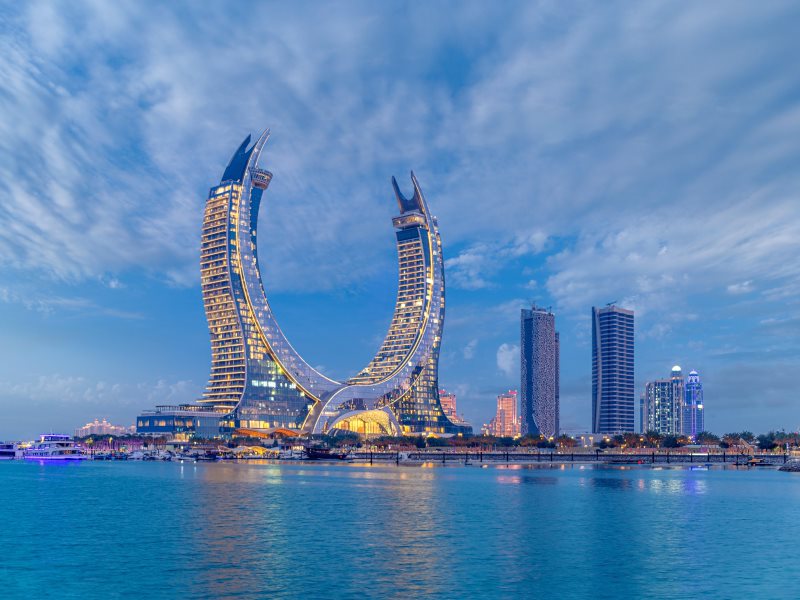The city was named after one of the rarest flowers in Qatar in an effort to reflect its unique identity.
A high-profile Islamic World conference designated Qatar’s Lusail City as the ‘Capital of Islamic Culture’ for the year 2030 on Monday in recognition of its position as a “historical cultural beacon”.
The major announcement came during a conference in Doha organised by the Islamic World Educational, Scientific, and Cultural Organization (ISESCO) with the attendance of officials from Muslim nations, per a report by Doha’s state-news agency QNA.
“The selection of Lusail as the Capital of Culture in the Islamic world is a recognition of the exceptional efforts and success of the Ministry of Culture in Qatar during its tenure as the Capital of Culture in the Islamic world,” QNA reported.
The selection process is based on a number of ISESCO principles that include the celebration of cultural histories and the promotion of “cultural and civilisational dialogue”. The principles were first adopted in 2017 by the Conference of Culture Ministers in the Islamic World in Khartoum.
Cities that have earned the prestigious designation stand out for their modern urban structures that simultaneously preserve their cultural identity.
“Furthermore, they should contribute significantly to the creative industries that play a pivotal role in achieving economic development,” QNA added.
Next year’s culture capital is the Azerbaijani city of Shusha, followed by Samarkand in Uzbekistan, the Palestinian city of Hebron, and Abidjan in Côte d’Ivoire in 2026. Then in 2027, the Egyptian city of Siwa will take on the title.
A marriage of culture and modernity
The bustling city of Lusail was named after one of the rarest flowers in Qatar to reflect its unique identity and preserve the Gulf nation’s rich heritage while keeping pace with modernity.
“The city of Lusail is considered a historical cultural beacon, and its name is derived from Qatar’s authentic heritage and its cultural values,” QNA reported.
The city is home to four exclusive islands, 19 multi-purpose residential areas, 22 world-class hotels, in addition to a diverse offering of shops and restaurants. The Qatari city is also set to become home to the brand new Lusail Museum in the coming years.
Lusail has witnessed a fast-paced transformation in recent years with the emergence of distinguishable buildings, most notably the iconic crescent-shaped Katara Towers and the Lusail Boulevard.
The major transformation occurred in the lead up to the 2022 FIFA World Cup, the first to ever take place in a Muslim and Arab nation.
Throughout the tournament, Lusail became a bustling hotspot for millions of football fans who flocked to Qatar for the World Cup and hosted the iconic Lusail Stadium, in which Argentina’s Lionel Messi was filmed being draped in a bisht by the Qatari leader after lifting the trophy.
The major tournament had served as a unique opportunity for Qatar to showcase the Arab culture and Muslim values to the rest of the world, tearing down past misconceptions and stereotypes about both the region and religion.
Lusail City previously earned the sustainable rating by the Global Sustainability Assessment System (GSAS).







